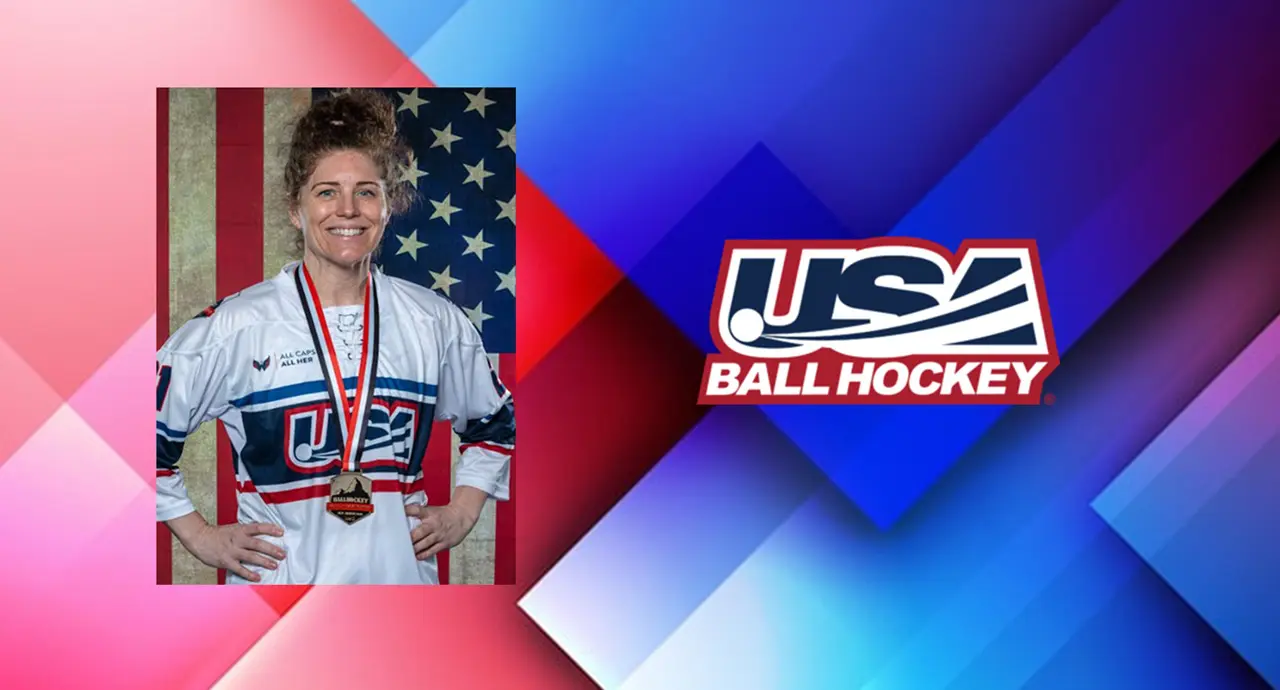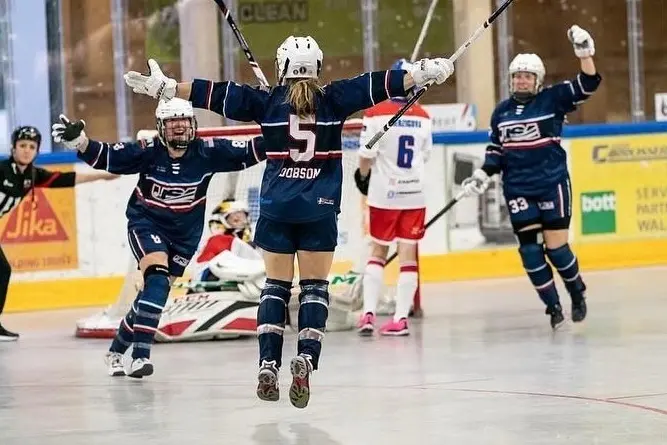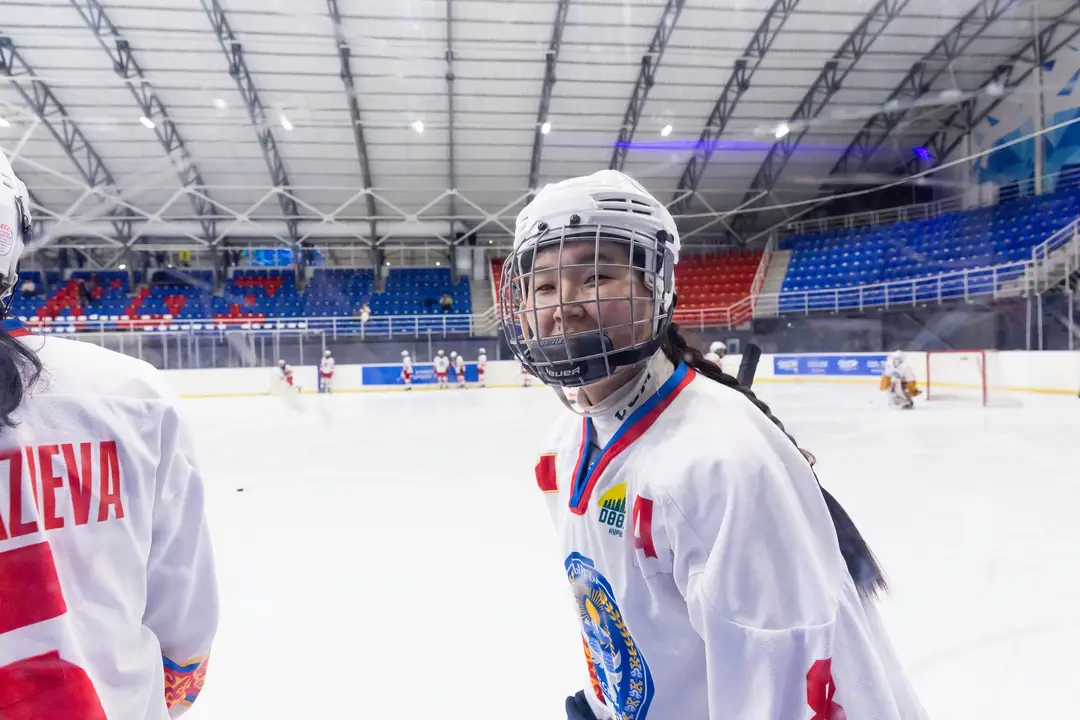.jpg)
Referees do not have an easy job. Walk into your local rink, and there is a fairly good chance that there is a coach, a player or a parent somewhere who is upset at a call a referee has (or has not) made. Instinct may suggest that it would be cruel to throw a 14 year old girl out onto the ice to call a game as a referee.
Despite this, there are many benefits to having young female hockey players train to be referees. As with the game of hockey itself, refereeing offers much more than just learning about how to officiate a game; it also teaches and develops a wide range of life skills that young referees can apply to different situations outside of their life at the rink.
From the point of view of two Hockey Canada Level 4 female referees, a female hockey club referee-in-chief and four young female players who also referee, here are the top eight reasons why young female hockey players should also take up refereeing:
(1) Young players who also referee can develop a greater respect for officials that coincides with a greater understanding of the official’s job and ways to improve safety.
“It helps with greater respect of the officials, and can help players take responsibility for their own play ([there is] more accountability) and avoid the ‘blame the ref syndrome,’ as they will understand what it’s like to be in the ref’s shoes.” – Sarah, Hockey Canada Level 4 referee and mentor for young female referees
“Players who are referees also learn more about respect and safety and that has beneficial translation on the ice when playing.” – Teresa, Hockey Canada Level 4 referee and mentor for young female referees
(2) As a referee, young players learn how to resolve conflict and make decisions in stressful situations, a tool that can transfer over to their life outside of hockey, improve their confidence, and give them the means necessary to deal with bullies and emotionally abusive individuals.
“Off the ice, there are tremendous life skills that one can learn by becoming a referee – assertiveness and improving confidence, conflict management … handling pressure … are all developed or enhanced in the scope of refereeing.” – Teresa
“Outside of hockey, refereeing helped a lot with being assertive. You’re 12 years old, and you have to tell angry 40, 50 year old men that your call stands or that they’re wrong about a rule. It’s something that you’re taught not to do growing up as a girl. But in a couple of years when you have to stand up to a 40, 50 year old man harassing you on the bus, it’s a lot easier.” – Liana, young female hockey player and referee
(Listing strengths of the young referees she works with): “[Their] ability to deal with angry coaches and address situations with the appropriate action.” – Sarah
“The skills they learn from reffing can be transposed to day-to-day life. For example, the ability to witness situations from an objective perspective, learning to face difficult situations by taking control of their initial fears, handling situations in which people are being emotionally abusive, being assertive with bullies…” – Dairobi, female hockey club referee-in-chief
“I have more confidence because of having to speak up and make decisions.” – Ashley, young female hockey player and referee
(3) As in many aspects of life, referees make mistakes. However, young referees (who are often mentored by senior referees), can learn how to come to terms with their mistakes and turn those mistakes into learning opportunities.
“Reffing has helped some to overcome some of their own personal difficulties by providing an activity which helps them work on their own skills. For example … understanding the process of learning from unintentional mistakes, overcoming the feelings associated with public shaming, [and] learning to appreciate yourself despite knowing you can and have made mistakes.” – Dairobi
(Listing things she has learned as a referee): “Accepting and admitting when you are wrong. Understanding that you learn from your mistakes and that this is part of becoming a better ref.” – Davida, young female hockey player and referee
(4) As referees, young players are exposed to a different understanding and view of the game, which can have positive impacts on the way they play and give them a greater understanding of the rules.
“Knowing the rules, and even more importantly, being able to read the play as a ref offers a huge advantage as a player. Vision and application is one of the hallmarks of a good referee. Those same attributes are also invaluable as a player, and reffing offers you another venue to develop this skill.” – Teresa
“I think it benefitted the way I play a lot because I was able to see players who were a lot better than me up close. It’s hard with an opponent to understand what makes them a good player when you’re trying to check them, but it you’re just skating and watching them it’s easier to see what they’re doing well.” – Liana
“[Refereeing] can make players more game smart and help them avoid taking penalties and understand better from a different perspective what’s a penalty and what’s not.” – Sarah
“The refereeing helped me understand what should and shouldn’t be penalized … An example of this is when I had my concussion and was sitting on the bench, I was able to address my coaches and my players complaints about why certain things were and were not called … Also strategies I have told my players to help them in their game as well, such as being allowed to cross over the blue line backwards when you have ‘possession and control.’” – Davida
“Refereeing helps me completely learn the rules which helps me while I’m playing, so I understand the calls the referee makes.” – Hazel, young female hockey player and referee
(5) As referees work with a range of different people – coaches, players, other officials, and sometimes parents – they are given a range of diverse opportunities to develop their communication skills.
(Listing skills that referees can learn and put to use in day-to-day life): “…learning to work as a team with your fellow officials who have a wide range of ages, abilities and personalities, in particular in some situations being able to work with people who in any other circumstance you would choose not to be with.” – Dairobi
(Listing things she has learned and experienced as a referee): “Having to work with officials of all ages and personality types and the coaches and players who are on the teams too … [developing] good leadership skills that help you work as equal partners [and share] the reffing responsibilities with other officials … Overcoming shyness to project a sense of confidence and to communicate clearly with coaches and players.” – Davida
(6) Skating development is important for young players. Refereeing gives them more time on the ice to improve both their skating and their fitness levels.
“There are invaluable gains to fitness and skating skills by being out on the ice more often, and in different situations than you might find yourself in as a player.” – Teresa
(Listing things she has learned as a referee): “Needing to be at the same or better level of fitness and skating skills of the players you are officiating.” – Davida
“I know I have to stay fit and healthy to be able to keep up with the skaters.” – Ashley
(7) Young hockey players can be very busy, making it difficult to get and maintain a part time job. Refereeing however can be a great form of practical employment for those young players.
“On the practical side, hockey players, especially those in rep programs, have significant time commitments on and off the ice that don’t necessarily lend themselves to part-time employment. Reffing hockey allows you to pick games that work in your own schedule, get an extra workout in, gain [life] skills … and earn some significant pocket money. Who knows, one day your part-time ‘job’ as a referee may also take you to amazing opportunities all over the world.” – Teresa
(8) Training young girls to be referees helps to grow the game of women’s hockey.
“I think having more female officials helps balance out a sport that is still very sexist and geared towards males. I believe it is important to train both male and female officials and it’s ideal to have a balance of both genders officiating both male and female games. Having officiated for over 20 years, it has been amazing to see the numbers of female officials grow the past few years. However, I still see a lot of female games with only male officials and I hope that a greater balance can be achieved with more development of female officials.” – Sarah
“The female side of hockey is self-contained … The skills and abilities of female officials is equivalent to male officials. Female officials understand much better the game of female hockey. It shows to the young players that they, too, can become officials.” – Dairobi
“Just like female players, having female officials perform in games [just] as well, or better than their male counterparts, increases the legitimacy of our sport … Female officials want to be involved in the female game and when qualified, should be given the opportunity to do so. Those who do can be excellent role models for the next generation too. The game will grow more quickly as more girls become players, coaches, and officials, all working together to build the sport.” – Teresa
[adrotate group=”1″]
Related Articles
Categories
Recent Posts
[adrotate group=”2″]




